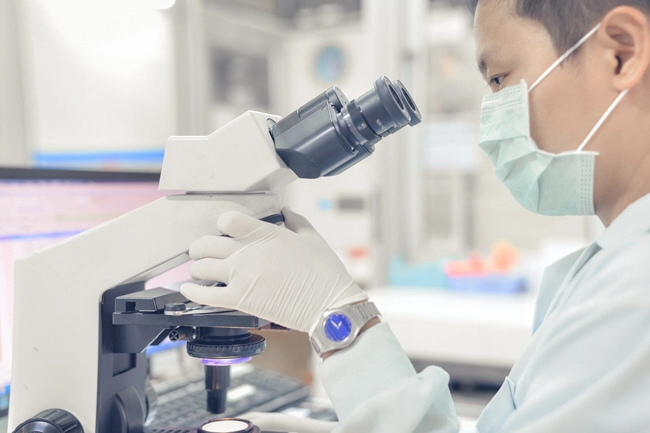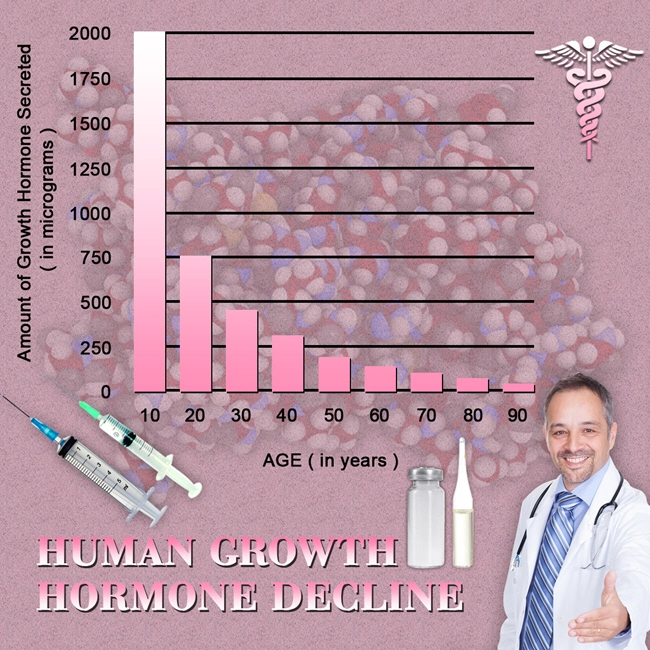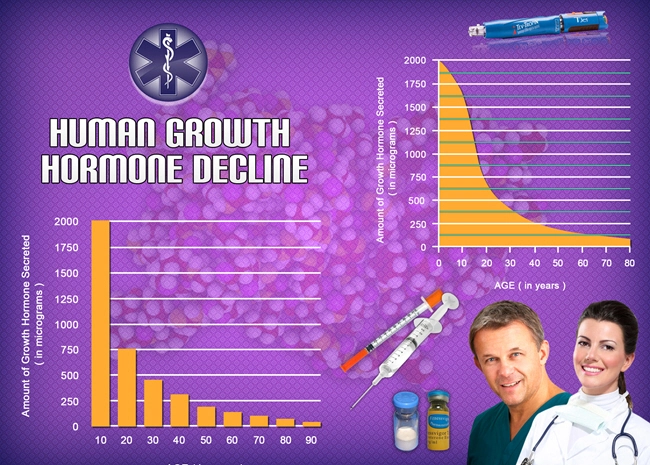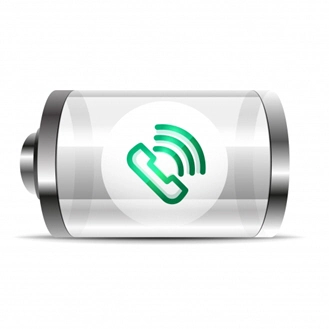
Regenerative medicine, fueled by the remarkable capabilities of stem cells, holds immense promise for the treatment of various diseases and injuries. This research article explores the fundamental concepts of stem cell biology, their mechanisms of action, and their applications in regenerative medicine. Furthermore, we delve into the exciting field of regenerative stem cell therapy and its potential to revolutionize healthcare by replacing damaged tissues and organs.
Introduction:
Stem cell research has emerged as a groundbreaking field with the potential to revolutionize medicine through regenerative approaches. Stem cells, due to their unique properties, can differentiate into various cell types, making them a valuable tool for repairing and replacing damaged tissues and organs. In this article, we will elucidate the mechanisms behind stem cell regeneration and discuss the prospects of regenerative stem cell therapy.
Regenerative Medicine and Stem Cells:
The goal of the interdisciplinary area of regenerative medicine is to repair, replace, or regenerate tissues or organs that have been lost or damaged as a result of trauma, illness, or aging. With their distinctive qualities, stem cells are at the forefront of regenerative medicine and are crucial for attaining these objectives.
Regeneration medicine, the newest and fastest-growing field of medicine, focuses on the functional restoration of a specific tissue or organ in patients with serious injuries or long-term illness states when the body's natural regeneration responses are insufficient. The need for transplantation of aging and ill populations, which has pushed the quest for alternatives, cannot currently be met by donated tissues and organs. Stem cells have recently become a leading source in regenerative medicine for the repair of tissues and organ anomalies caused by congenital defects, disease, and age-related effects. Stem cells are endorsed with indefinite cell division potential and can differentiate into other types of cells. All of the body's tissues and organ systems are built on stem cells, which also play a variety of roles in the development of illness and the procedures that the host uses to heal damaged tissue.
The four categories of stem cells are unipotent, multipotent, pluripotent, and totipotent based on their ability to undergo transdifferentiation. While cells from the inner cell mass (ICM) of the embryo are pluripotent and can differentiate into cells representing three germ layers but do not differentiate into cells of extraembryonic tissue, the zygote, the only totipotent stem cell in the human body, can give rise to the entire organism through the process of transdifferentiation. [1]
How Do Stem Cells Work?
But, How Do Stem Cells Work?
Let's begin by dividing stem cell treatments into two groups: those that have been authorized (by the FDA) and those that have not. For the science, efficiency, and safety of stem cell therapy, whether it is approved or not has a significant impact.
There are several types of stem cells, including embryonic stem cells (ESCs), induced pluripotent stem cells (iPSCs), and adult stem cells.
Embryonic Stem Cells (ESCs): Derived from early-stage embryos, ESCs have the greatest differentiation potential. They can develop into any cell type in the human body, making them a valuable resource for regenerative medicine research.
Induced Pluripotent Stem Cells (iPSCs): iPSCs are adult cells that have been reprogrammed to revert to a pluripotent state, similar to ESCs. This technology enables the generation of patient-specific stem cells for personalized regenerative therapies.
Adult Stem Cells: Found in various tissues throughout the body, adult stem cells play a crucial role in tissue maintenance and repair. They are responsible for replenishing damaged or aging cells.
Only a few stem cell-based treatments that have received FDA approval are readily available right now. Blood stem cell transplants, which employ these cells to treat patients with blood malignancies like leukemia, are the most popular form of treatment for this condition.
Chemotherapy is used to treat the cancerous cells in this treatment, and the cancerous cells are subsequently replaced with healthy stem cells in the hopes that the healthy stem cells will multiply and generate healthy tissue. The blood stem cell transplant process underwent extensive testing and study over many years, just like all other therapies that have received FDA approval.
A variety of stem cell therapies have lately been marketed by hundreds of companies around the nation that identify themselves as clinics and claim to be able to treat both serious disorders like Parkinson's disease and more everyday problems like joint pain. The majority of these forms of stem cell treatment don't even employ stem cells. Instead, they take tissues thought to contain adult stem cells out of one bodily area and provide those cells to another. [2]
Understanding the Timelines and Effectiveness of Stem Cell Therapy:
Furthermore, there is no evidence to support the efficacy or safety of any stem cell therapy provided by stem cell clinics. Unapproved therapies are designed and carried out with limited monitoring, in contrast to FDA-approved procedures, which are subject to years of meticulous testing. The purported benefits of stem cell therapy have never been the subject of a large-scale clinical investigation, even though stem cell clinics frequently feature positive customer reviews. The FDA has started to tighten laws and enforce them against these clinics in recent years.
We now know a lot more about the efficacy of blood stem cell transplants as a result of decades' worth of research.
Notable applications of regenerative stem cell therapy:
Ventricular regeneration:
Following a cardiac attack, stem cells can mend damaged heart tissue, potentially restoring heart function.
Neurological conditions:
By regenerating damaged neurons, stem cells have the potential to heal diseases, including Parkinson's, Alzheimer's, and spinal cord injuries.
Skeletal regeneration:
Injuries to the bone and cartilage can be helped by stem cells, giving patients with osteoarthritis and fractures hope.
Transplanting organs:
Organ and tissue products made from stem cells may one day lessen the need for organ donors and ease the transplant shortage.
Conclusion:
Stem cell research and regenerative medicine represent a frontier in healthcare, offering the potential to address previously untreatable conditions and revolutionize medical practice. Understanding the mechanisms of stem cell regeneration and the development of regenerative stem cell therapies are critical steps toward realizing the full potential of this field. As research continues, we can anticipate breakthroughs that will transform the way we approach and treat a wide array of diseases and injuries.
Contact Us Today For A Free Consultation
Dear Patient,
Once you have completing the above contact form, for security purposes and confirmation, please confirm your information by calling us.
Please call now: 1-800-380-5339.
Welcoming You To Our Clinic, Professor Tom Henderson.

- Our HGH Clinic And Web Site Privacy Policy [Last Updated On: May 23rd, 2019] [Originally Added On: December 14th, 2017]
- Idaho HGH Clinics [Last Updated On: December 22nd, 2023] [Originally Added On: March 19th, 2018]
- Injectable HGH Prescriptions In Cheyenne, Wyoming [Last Updated On: April 15th, 2025] [Originally Added On: March 3rd, 2019]
- Injectable HGH Prescriptions In Milwaukee, Wisconsin [Last Updated On: April 19th, 2025] [Originally Added On: March 3rd, 2019]
- Injectable HGH Prescriptions In Madison, Wisconsin [Last Updated On: April 1st, 2025] [Originally Added On: March 3rd, 2019]
- Injectable HGH Prescriptions In Green Bay, Wisconsin [Last Updated On: March 22nd, 2025] [Originally Added On: March 3rd, 2019]
- Injectable HGH Prescriptions In Charleston, West Virginia [Last Updated On: November 29th, 2023] [Originally Added On: March 3rd, 2019]
- Injectable HGH Prescriptions In Vancouver, Washington [Last Updated On: February 18th, 2025] [Originally Added On: March 3rd, 2019]
- Injectable HGH Prescriptions In Tacoma, Washington [Last Updated On: January 16th, 2025] [Originally Added On: March 3rd, 2019]
- Injectable HGH Prescriptions In Spokane, Washington [Last Updated On: April 16th, 2025] [Originally Added On: March 3rd, 2019]
- Injectable HGH Prescriptions In Seattle, Washington [Last Updated On: December 27th, 2023] [Originally Added On: March 3rd, 2019]
- Injectable HGH Prescriptions In Washington D.C [Last Updated On: January 15th, 2025] [Originally Added On: March 3rd, 2019]
- Injectable HGH Prescriptions In Bellevue, Washington [Last Updated On: November 24th, 2024] [Originally Added On: March 3rd, 2019]
- Injectable HGH Prescriptions In Virginia Beach, Virginia [Last Updated On: January 18th, 2025] [Originally Added On: March 3rd, 2019]
- Injectable HGH Prescriptions In Richmond, Virginia [Last Updated On: January 25th, 2025] [Originally Added On: March 3rd, 2019]
- Injectable HGH Prescriptions In Portsmouth, Virginia [Last Updated On: April 10th, 2025] [Originally Added On: March 3rd, 2019]
- Injectable HGH Prescriptions In Norfolk, Virginia [Last Updated On: December 24th, 2023] [Originally Added On: March 3rd, 2019]
- Injectable HGH Prescriptions In Newport News, Virginia [Last Updated On: April 12th, 2025] [Originally Added On: March 3rd, 2019]
- Injectable HGH Prescriptions In Hampton, Virginia [Last Updated On: January 11th, 2025] [Originally Added On: March 3rd, 2019]
- Injectable HGH Prescriptions In Chesapeake, Virginia [Last Updated On: January 9th, 2025] [Originally Added On: March 3rd, 2019]
- Injectable HGH Prescriptions In Arlington, Virginia [Last Updated On: February 6th, 2025] [Originally Added On: March 3rd, 2019]
- Injectable HGH Prescriptions In Alexandria, Virginia [Last Updated On: December 13th, 2023] [Originally Added On: March 3rd, 2019]
- Injectable HGH Prescriptions In Montpelier, Vermont [Last Updated On: April 29th, 2025] [Originally Added On: March 3rd, 2019]
- Injectable HGH Prescriptions In West Valley City, Utah [Last Updated On: April 16th, 2025] [Originally Added On: March 3rd, 2019]
- Injectable HGH Prescriptions In West Jordan, Utah [Last Updated On: March 15th, 2025] [Originally Added On: March 3rd, 2019]
- Injectable HGH Prescriptions In Salt Lake City, Utah [Last Updated On: January 28th, 2025] [Originally Added On: March 3rd, 2019]
- Injectable HGH Prescriptions In Provo, Utah [Last Updated On: November 19th, 2023] [Originally Added On: March 3rd, 2019]
- Injectable HGH Prescriptions In Wichita Falls, Texas [Last Updated On: April 1st, 2025] [Originally Added On: March 3rd, 2019]
- Injectable HGH Prescriptions In Waco, Texas [Last Updated On: March 15th, 2025] [Originally Added On: March 3rd, 2019]
- Injectable HGH Prescriptions In San Antonio, Texas [Last Updated On: February 4th, 2025] [Originally Added On: March 3rd, 2019]
- Injectable HGH Prescriptions In Round Rock, Texas [Last Updated On: December 29th, 2024] [Originally Added On: March 3rd, 2019]
- Injectable HGH Prescriptions In Richardson, Texas [Last Updated On: March 10th, 2025] [Originally Added On: March 3rd, 2019]
- Injectable HGH Prescriptions In Plano, Texas [Last Updated On: February 6th, 2025] [Originally Added On: March 3rd, 2019]
- Injectable HGH Prescriptions In Pasadena, Texas [Last Updated On: March 31st, 2025] [Originally Added On: March 3rd, 2019]
- Injectable HGH Prescriptions In Midland, Texas [Last Updated On: April 23rd, 2025] [Originally Added On: March 3rd, 2019]
- Injectable HGH Prescriptions In Mesquite, Texas [Last Updated On: April 9th, 2025] [Originally Added On: March 3rd, 2019]
- Injectable HGH Prescriptions In McKinney, Texas [Last Updated On: December 4th, 2023] [Originally Added On: March 3rd, 2019]
- Injectable HGH Prescriptions In McAllen, Texas [Last Updated On: April 3rd, 2025] [Originally Added On: March 3rd, 2019]
- Injectable HGH Prescriptions In Lubbock, Texas [Last Updated On: November 14th, 2023] [Originally Added On: March 3rd, 2019]
- Injectable HGH Prescriptions In Lewisville, Texas [Last Updated On: January 29th, 2025] [Originally Added On: March 3rd, 2019]
- Injectable HGH Prescriptions In Laredo, Texas [Last Updated On: April 26th, 2025] [Originally Added On: March 3rd, 2019]
- Injectable HGH Prescriptions In Killeen, Texas [Last Updated On: March 4th, 2025] [Originally Added On: March 3rd, 2019]
- Injectable HGH Prescriptions In Irving, Texas [Last Updated On: February 9th, 2025] [Originally Added On: March 3rd, 2019]
- Injectable HGH Prescriptions In Houston, Texas [Last Updated On: April 6th, 2025] [Originally Added On: March 3rd, 2019]
- Injectable HGH Prescriptions In Grand Prairie, Texas [Last Updated On: January 17th, 2025] [Originally Added On: March 3rd, 2019]
- Injectable HGH Prescriptions In Garland, Texas [Last Updated On: February 14th, 2025] [Originally Added On: March 3rd, 2019]
- Injectable HGH Prescriptions In Fort Worth, Texas [Last Updated On: April 21st, 2025] [Originally Added On: March 3rd, 2019]
- Injectable HGH Prescriptions In El Paso, Texas [Last Updated On: February 28th, 2025] [Originally Added On: March 3rd, 2019]
- Injectable HGH Prescriptions In Denton, Texas [Last Updated On: May 6th, 2025] [Originally Added On: March 3rd, 2019]
- Injectable HGH Prescriptions In Dallas, Texas [Last Updated On: December 31st, 2024] [Originally Added On: March 3rd, 2019]
- Injectable HGH Prescriptions In Corpus Christi, Texas [Last Updated On: December 23rd, 2024] [Originally Added On: March 3rd, 2019]
- Injectable HGH Prescriptions In Carrollton, Texas [Last Updated On: November 25th, 2024] [Originally Added On: March 3rd, 2019]
- Injectable HGH Prescriptions In Brownsville, Texas [Last Updated On: February 4th, 2025] [Originally Added On: March 3rd, 2019]
- Injectable HGH Prescriptions In Beaumont, Texas [Last Updated On: April 4th, 2025] [Originally Added On: March 3rd, 2019]
- Injectable HGH Prescriptions In Austin, Texas [Last Updated On: December 21st, 2024] [Originally Added On: March 3rd, 2019]
- Injectable HGH Prescriptions In Arlington, Texas [Last Updated On: January 13th, 2025] [Originally Added On: March 3rd, 2019]
- Injectable HGH Prescriptions In Amarillo, Texas [Last Updated On: March 18th, 2025] [Originally Added On: March 3rd, 2019]
- Injectable HGH Prescriptions In Abilene, Texas [Last Updated On: January 5th, 2025] [Originally Added On: March 3rd, 2019]
- Injectable HGH Prescriptions In Nashville, Tennessee [Last Updated On: March 2nd, 2025] [Originally Added On: March 3rd, 2019]
- Injectable HGH Prescriptions In Murfreesboro, Tennessee [Last Updated On: March 8th, 2025] [Originally Added On: March 3rd, 2019]
- Injectable HGH Prescriptions In Memphis, Tennessee [Last Updated On: March 28th, 2025] [Originally Added On: March 3rd, 2019]
- Injectable HGH Prescriptions In Knoxville, Tennessee [Last Updated On: March 25th, 2025] [Originally Added On: March 3rd, 2019]
- Injectable HGH Prescriptions In Clarksville, Tennessee [Last Updated On: February 2nd, 2025] [Originally Added On: March 3rd, 2019]
- Injectable HGH Prescriptions In Chattanooga, Tennessee [Last Updated On: January 29th, 2025] [Originally Added On: March 3rd, 2019]
- Injectable HGH Prescriptions In Sioux Falls, South Dakota [Last Updated On: December 25th, 2024] [Originally Added On: March 3rd, 2019]
- Injectable HGH Prescriptions In Columbia, South Carolina [Last Updated On: February 2nd, 2025] [Originally Added On: March 3rd, 2019]
- Injectable HGH Prescriptions In Charleston, South Carolina [Last Updated On: January 31st, 2025] [Originally Added On: March 3rd, 2019]
- Injectable HGH Prescriptions In Providence, Rhode Island [Last Updated On: January 30th, 2025] [Originally Added On: March 3rd, 2019]
- Injectable HGH Prescriptions In Pittsburgh, Pennsylvania [Last Updated On: December 3rd, 2023] [Originally Added On: March 3rd, 2019]
- Injectable HGH Prescriptions In Erie, Pennsylvania [Last Updated On: January 4th, 2025] [Originally Added On: March 3rd, 2019]
- Injectable HGH Prescriptions In Allentown, Pennsylvania [Last Updated On: May 6th, 2025] [Originally Added On: March 3rd, 2019]
- Injectable HGH Prescriptions In Salem, Oregon [Last Updated On: January 31st, 2025] [Originally Added On: March 3rd, 2019]
- Injectable HGH Prescriptions In Portland, Oregon [Last Updated On: February 1st, 2025] [Originally Added On: March 3rd, 2019]
- Injectable HGH Prescriptions In Gresham, Oregon [Last Updated On: January 30th, 2025] [Originally Added On: March 3rd, 2019]
- Injectable HGH Prescriptions In Eugene, Oregon [Last Updated On: January 27th, 2025] [Originally Added On: March 3rd, 2019]
- Injectable HGH Prescriptions In Tulsa, Oklahoma [Last Updated On: December 15th, 2023] [Originally Added On: March 3rd, 2019]
- Injectable HGH Prescriptions In Oklahoma City, Oklahoma [Last Updated On: February 22nd, 2025] [Originally Added On: March 3rd, 2019]
- Injectable HGH Prescriptions In Norman, Oklahoma [Last Updated On: April 28th, 2025] [Originally Added On: March 3rd, 2019]
- Injectable HGH Prescriptions In Toledo, Ohio [Last Updated On: April 14th, 2025] [Originally Added On: March 3rd, 2019]
- Injectable HGH Prescriptions In Dayton, Ohio [Last Updated On: April 11th, 2025] [Originally Added On: March 3rd, 2019]








